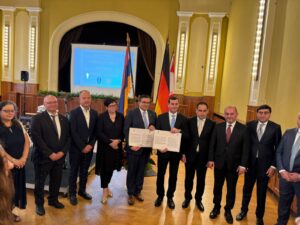By Aram Arkun
Mirror-Spectator Staff
WATERTOWN – Alec Mouhibian is a producer and co-writer and co-director of the movie “1915,” which is premiering in the Boston area on August 27 and September 10. The Mirror-Spectator and the Tekeyan Cultural Association, sponsors of the September 10 showing, had the opportunity to speak with Mouhibian about his role in the film.







